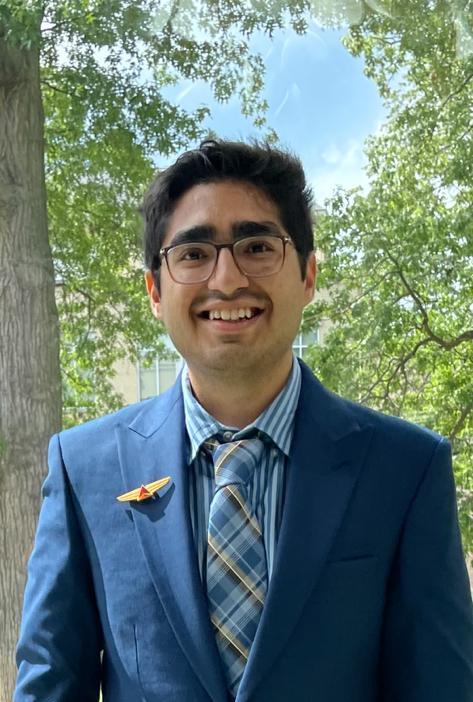
Meet Kabir Bajaj, a junior majoring in Economics. Kabir discovered his interest in economics during high school. While he initially viewed it as a subject to explore, he never imagined it would become his career path. Upon entering college, he decided to pursue economics because he could explore so many topics but also offered him a way to develop skills such as using data to drive our understanding of a problem. As Kabir delved deeper into his coursework, he began to grasp the essence of economics and eventually realized why he was drawn to it. Drawing a parallel to his passion for Legos, Kabir likens economics to the process of assembling Lego pieces because they allow us to construct different models and understand things from different perspectives. This understanding is crucial for his keen interest in politics. The different models give him a lens though which he can analyze and interpret current events. For Kabir, economics is not about making companies or individuals profitable; it is about ensuring the profitability of society as a whole. This doesn’t just mean monetary gain, but also the effective use of resources, labor, and infrastructure for everyone.
Kabir’s favorite project in the department is the paper he wrote for Econometrics, which explored the impact of currency fluctuations on foreign direct investment in India from 1970 to the present. This paper was particularly impactful for him because it allowed him to apply theoretical concepts and connect them to reveal a broader picture, addressing a significant question. Through this assignment, Kabir learned the value of patience, realizing that desired results may not show immediately but can be achieved through consistent effort. He notes that while learning about regression, the practical application may not be immediately apparent. However, through this project, he saw how incremental improvements culminated in the final result of his research.
Kabir’s favorite aspect of the Economics department at Wooster is his personal connection with the professors. He believes that knowing professors on an individual level serves as a great motivation for students to excel. Additionally, the small class sizes greatly benefit him as they allow for active engagement in lectures rather than passive observation. According to Kabir, active engagement and a close relationship with professors lead to better learning outcomes for students.
Kabir found Dan Griffis‘ visit to be highly enriching for the department as it facilitated valuable networking opportunities for students. What resonated most with Kabir from Dan Griffis’ lecture was the idea that life does not follow a linear path, but rather can take you in many directions. He learned that success could come from transitioning between industries, highlighting the unpredictability of life’s journey. Kabir also realized that while planning ahead is important, life cannot be accurately modeled, which he sees as a positive aspect. He believes that through hard work, one can achieve outcomes that may not have been initially anticipated but are ultimately beneficial.
Kabir’s advice for prospective students is to view classes not merely as requirements, but as opportunities to expand their understanding of economics. He suggests approaching classes as a journey that contributes to their career development, rather than as a transition point in their lives. Additionally, he recommends utilizing the resources offered by the College, such as newspapers, to stay informed and engaged with global events. This approach, he believes, will enhance students’ perspectives on the theoretical concepts they learn in class.